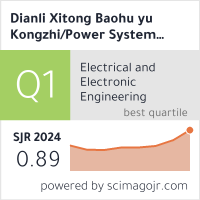INTEGRATING ROBOTIC PROCESS AUTOMATION INTO POWER SYSTEM CONTROL: A FRAMEWORK FOR ADAPTIVE CHANGE MANAGEMENT AND OPERATIONAL RESILIENCE
Keywords:
Robotic Process Automation (RPA), Power System Protection, SCADA Integration, Change Management, Smart Grid Automation, Organisational Resilience, Fault Detection, Adaptive Framework, Operational Technology (OT), Grid Reliability.Abstract
Increasingly complex modern power systems and the quest toward intelligent grid control have fueled the implementation of Robotic Process Automation (RPA) in control centres and protection systems using SCADA. The technical advantages of automation are well known; however, its organisational aspects within high-reliability environments have not been discussed. This work will discuss an Adaptive Change Management Framework to implement RPA in the power system protection and control process, which integrates real-time automation and scheduled change integration. Mixed methods are used, where technical validation of the Smart Grid Monitoring Dataset is combined with the organisational impact survey, which is simulated. The findings have indicated that by implementing RPA, there is a dominant and encouraging change in the performance metrics of the system, such as detection percentage (96.7%), false positives (reduced to 1.8%), and average response time (0.45 seconds). At the same time, the completion rate of the training was increased to 94% in just four weeks, and confidence in the automation was enhanced by 42%, thanks to the support of direct communication channels and feedback loops. The framework will be organised into three levels: an RPA Core Engine, a Change Management Layer focusing on training and trust measures, and a Governance and Safety Layer encompassing cybersecurity, approval processes, and compliance. Such architecture guarantees technical reliability and creates operational penetration. Findings The findings provide power utilities a scale-based risk-considerate avenue of integrating automations into their mission-critical facilities. The paper closes the gap between the theoretical analysis of the digital transformation and applied engineering practice, the literature on smart grid automation, and the practical approaches to work.





